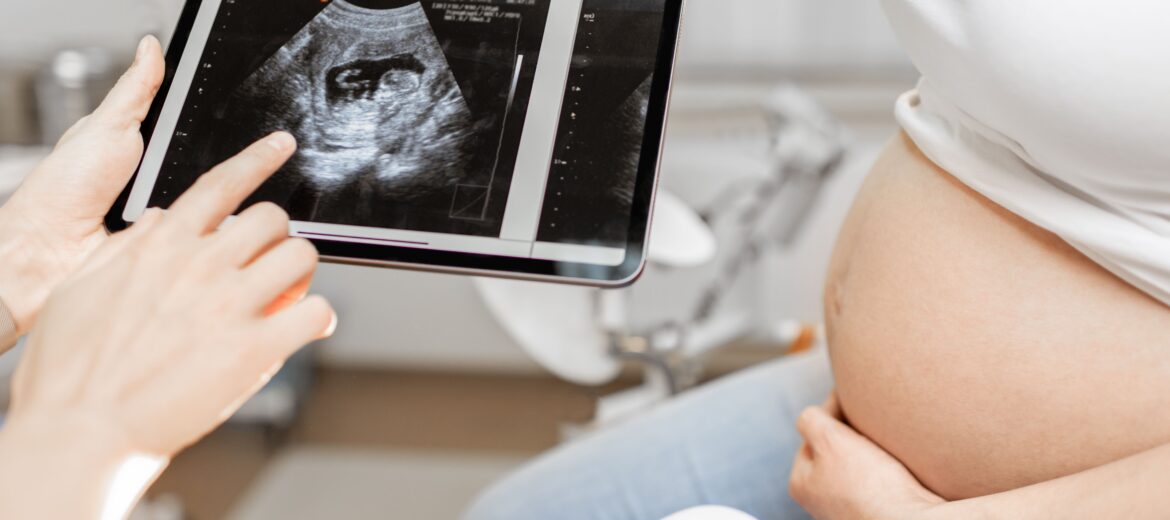An ectopic pregnancy is usually an unpleasant situation for the woman because of all that it implies, but once it is overcome, a standard pregnancy can be attempted without setbacks.
In order for you to know a little more about this type of pregnancy, we share the corresponding details.
What is ectopic pregnancy?
A pregnancy begins when an egg is fertilized, and usually this egg moves to the uterus to attach itself to the inner walls of the uterus. What is known as ectopic pregnancy is generated when the already fertilized egg is located, implants and begins to develop outside the main area of the uterus.
Pregnancies of this type usually occur with a higher percentage in the fallopian tubes, which are the channels through which the eggs move from the ovary to the uterus. In this case, the pregnancy is called tubal.
It should also be noted that ectopic pregnancies can occur in other parts of a woman’s anatomy, such as the ovaries, lower uterus or abdominal cavity.
This type of pregnancy cannot develop normally, since the fertilized egg does not have the capacity to survive in an inappropriate environment. In addition, the increase in tissue can generate bleeding and this can be life-threatening for the woman if not treated promptly.

Symptoms of ectopic pregnancy
In some cases, women have no symptoms at all in early pregnancy. In other cases, women with an ectopic pregnancy experience symptoms early on that are common to a normal pregnancy, such as breast tenderness, absence of menstruation and nausea.
If you choose to take a pregnancy test, you will get a positive result, but unfortunately the pregnancy will not be able to continue normally.
Over time, as the fertilized egg grows outside the uterus, the signs of this irregular pregnancy will become more noticeable. Symptoms are variable and are likely to occur when the structure containing the pregnancy ruptures as a result of the pregnancy.
Generally the symptoms presented are vaginal bleeding, scanty bleeding and in some cases pain. When pain is experienced, it may be mild, sharp and crampy in the lower abdomen.
In case of heavy bleeding, the woman may sweat, become dizzy and even faint. These signs indicate that blood loss has caused a dangerous drop in blood pressure. Peritonitis, or inflammation of the membrane lining the cavity of the abdomen, may also occur.
On the other hand, the menstrual period may be missed or delayed.
In what week is an ectopic pregnancy detected?
Usually, the symptoms of an ectopic pregnancy become present a few weeks after conception.
When the embryo begins to grow and reaches three or four centimeters, approximately in the sixth week, it ruptures the fallopian tube, the cervix or the ovary, causing heavy bleeding and pain in the abdomen, which can be life-threatening for the woman.
When this rupture occurs, a spontaneous abortion is usually generated.
On the other hand, the first signs of a pregnancy of this type are usually similar to those of a normal pregnancy, so it is recommended to see a medical specialist for a vaginal ultrasound examination, through which it can be determined whether the embryo is well implanted or not.
You can also opt for a blood test, to validate if the HCG (human chorionic gonadotropin) hormone shows a decrease out of normal. This is also a telltale factor of an ectopic pregnancy.
When does ectopic pregnancy start to hurt?
The pain usually appears when the embryo has reached a certain size and breaks the structure that houses it. As mentioned above, this usually occurs around the sixth week of pregnancy.
In these cases you should see a medical specialist, especially when you experience:
- Vaginal bleeding combined with severe pain in the abdomen or pelvis.
- Extreme dizziness or fainting.
- Shoulder pain.
Diagnosis of ectopic pregnancy
Because such a pregnancy can be life-threatening for the mother, a rapid diagnosis is necessary.
There are several ways to diagnose an ectopic pregnancy, the most common or used by gynecologists are the following:
- A pregnancy test.
- Ultrasound.
- A blood test.
- Laparoscopy.
Doctors may suspect the presence of an irregular pregnancy in women of childbearing age who experience pain in the lower abdomen, vaginal bleeding, cardiocirculatory shock or fainting. In these cases, a urine pregnancy test is chosen.
If the test is positive, or negative but the symptoms continue, an ultrasound scan is performed to detect the embryo in an inappropriate location and confirm the diagnosis.
Another alternative applied by physicians is the blood test with which they seek to measure a hormone generated by the placenta when pregnancy begins, we are referring to human chorionic gonadotropin (hCG). This evaluation makes it possible to determine whether it is a very early pregnancy or an ectopic pregnancy.
In case the diagnosis needs to be confirmed, doctors usually perform an exploration in the operating room under anesthesia by inserting a laparoscopic tube, which allows them to see the ectopic pregnancy directly.
If all these tests do not validate the diagnosis of ectopic pregnancy, and the pregnancy does not present serious problems, HCG levels in the blood are measured periodically. The level of this hormone should increase rapidly in a pregnancy that is progressing normally, otherwise there is a possibility of an ectopic pregnancy or miscarriage.
Points of interest
As additional information, here are the answers to some of the questions related to these pregnancies.
If you work, you may be asking yourself the following questions
How much sick leave can I ask for due to ectopic pregnancy?
The length of time off work will depend on the treatment received to resolve the ectopic pregnancy. It will vary from one week, in case of spontaneous resolution, to one month or more if surgery has been required. During this period your body must recover.
Another of the women’s concerns is as follows:
After an ectopic pregnancy, when can I have sex?
If your wound has healed perfectly and you have resumed your normal life, you can have sex taking care not to exert yourself too much for another three weeks.

